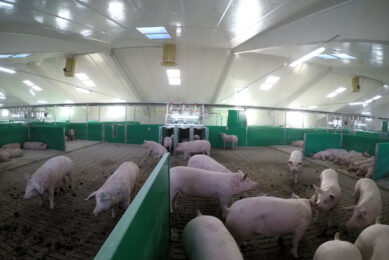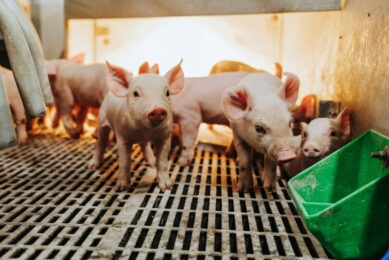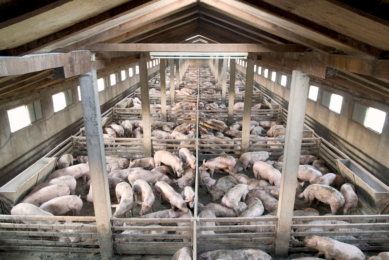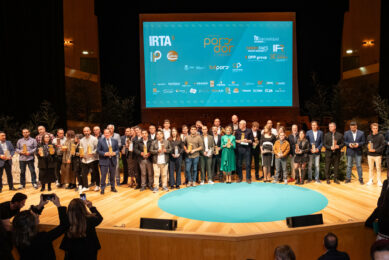CSF persistence in piglets depends on age
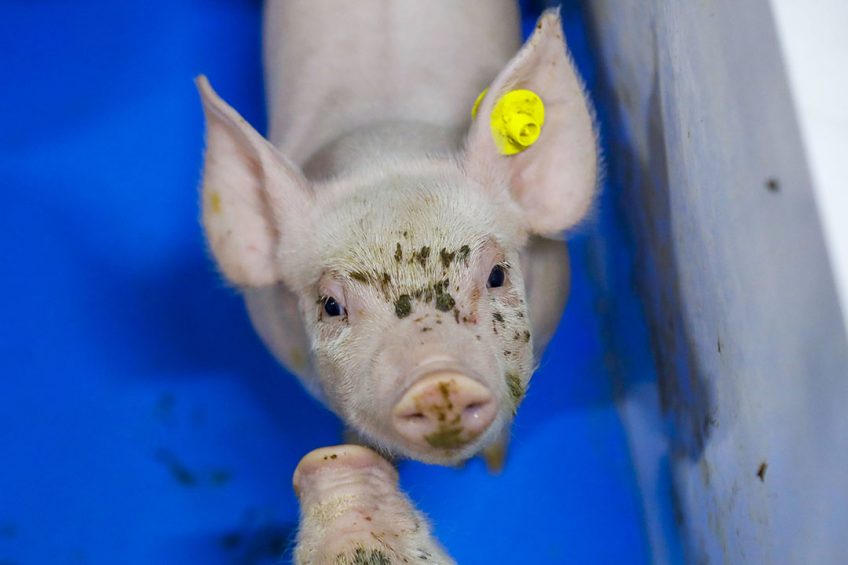
The age on which pigs get infected by Classical Swine Fever (CSF) plays a role with regard to the level to which the virus can be persistent in pigs.
That was one of the outcomes of recent research at the Catalan research institute IRTA-CReSA, Spain. The study was published recently in the journal Transboundary and Emerging Diseases.
CSFv may persist when pregnant sows get infected
The study draws on a few earlier publications. Since the late 70s, it has already been documented that CSFv may persist when pregnant sows become infected during the 2nd or 3rd pregnancy. Piglets born from these sows are infected with high virus loads, but are unable to generate an immune response.
In the current research article, that phenomenon is described as follows: “These animals may appear clinically healthy or show unspecific clinical signs despite the permanent viraemia and high viral shedding, in absence of immune response to the virus.”
Something like that would make it difficult to detect the virus through the diagnostic techniques traditionally used for the epidemiological monitoring of the disease. Consequently, those animals go unnoticed on farms, spread the virus and neutralise efforts made to eradicate the disease.
Generating viral persistence in newborn piglets
In a more recent study, it was reported that CSFv is also capable of generating viral persistence after infecting newborn piglets with low and moderate virulence strains, such as the Catalonia 2001 strain (Cat01) that caused an outbreak in 2001 in different farms in northern Spain. Those newborn pigs can go clinically unnoticed or show symptoms not associated with the African Swine Fever because an immune response is not generated. So far it was not known if this phenomenon can occur only in newborn pigs or also in older animals.

Read more on pig health in the Pig Progress Health Tool
In the most recent study, which was published recently in Transboundary and Emerging Diseases, the Spanish researchers showed that piglets born from a sow without pestivirus which were infected with the Cat01 strain at 21 days of age can also develop persistent infection with CSFv. This age of infection is important, since 21 days after birth the animals are weaned and together with piglets from other litters in some farms, where they could spread the disease.
In total 9 pigs were infected with Classical Swine Fever virus and sampled weekly during 6 weeks and viral, clinical, pathological and immunological tests were carried out.
Age plays a role
Interestingly, the proportion of animals that presented this form of the disease (44.4%) was lower than previously reported in studies with newborn piglets, less than 21 days old, where about 60% of the animals were persistently infected. This result suggests that the age at which animals become infected plays a role in establishing persistent infection with CSFv, with older animals being less susceptible to developing persistent infection with CSFv.

Earlier research at IRTA-CReSA involved the dynamics of PCV3 on Spanish pig farms
In addition, in this study the researchers found that animals persistently infected with CSFv have alterations in some of the immune system cell populations. Those alterations have been described in other species as signs of ‘immune depletion’, a phenomenon that can negatively affect the response of the immune system, not only against CSFv, but also against other infections. The researchers wrote that future studies will help clarify the importance that these findings may have, both for the control of the CSF, and for animal health in general.
Important disease for animal health worldwide
As a background to the research, the scientists wrote that CSF continues to be one of the most important diseases for animal health worldwide, generating high economic losses due to the costs derived from the death of the animals, as well as the eradication efforts.
The research article was authored by José Alejandro Bohórquez, Miaomiao Wang, Marta Pérez-Simó, Enric Vidal, Rosa Rosell and Llilianne Ganges, all attached to IRTA-CReSA, Spain. Rosa Rosell also is attached to the Generalitat de Catalunya, Spain.



